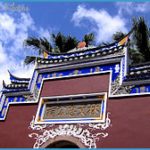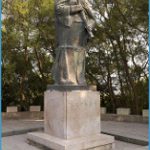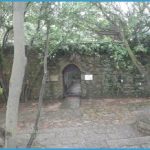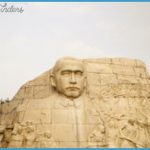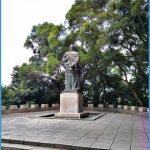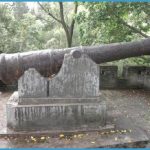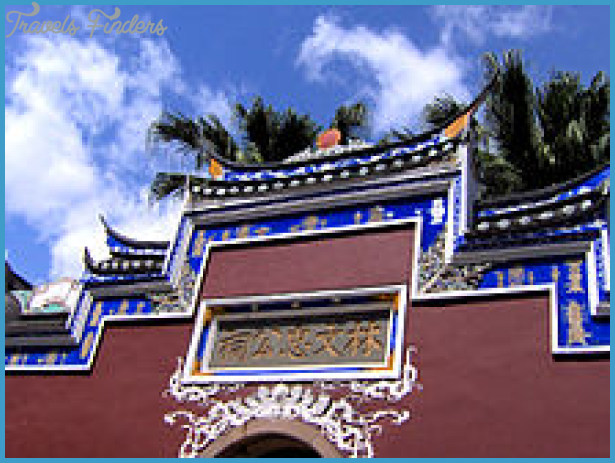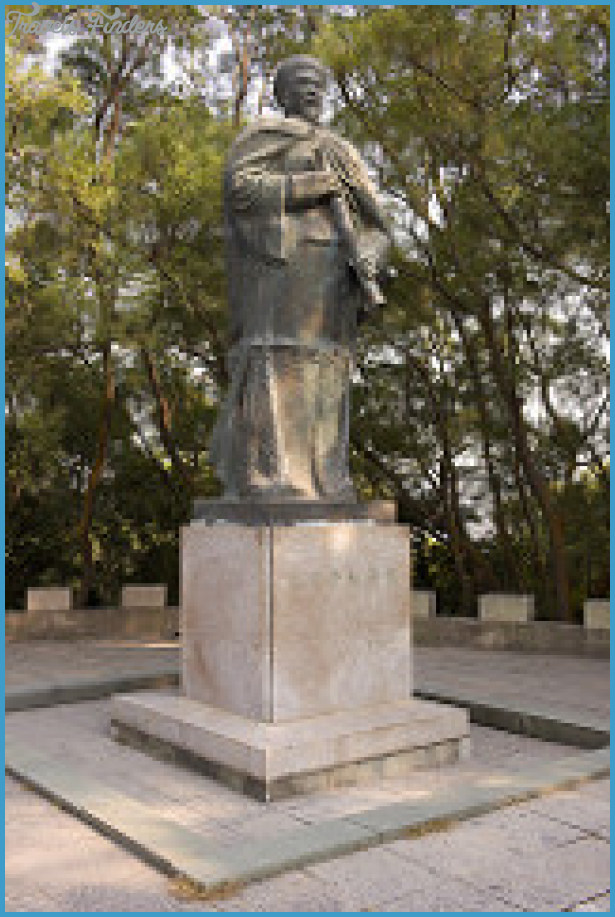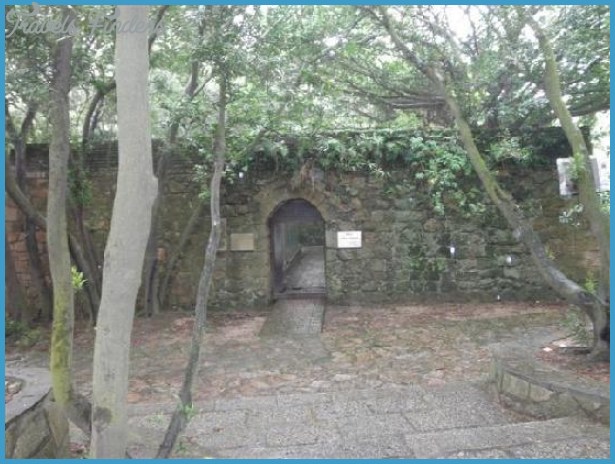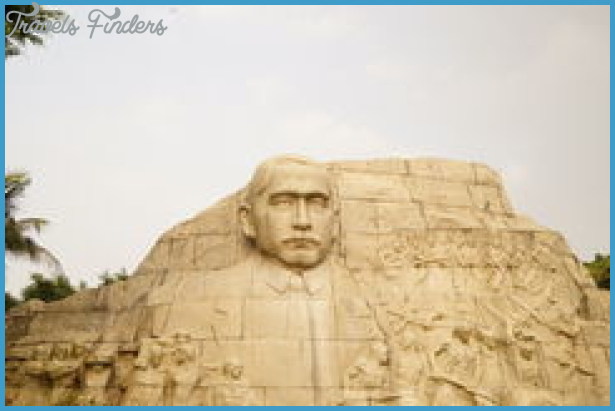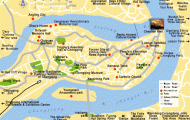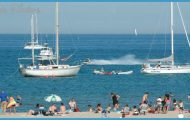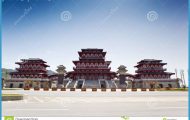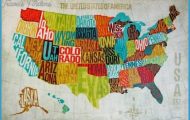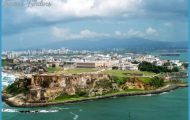Outside the fort is a large statue, in the modern mode, of Lin Zexu.
Lin was born in 1785 in Fujian. He succeeded brilliantly in the Official Examinations where he rose to the highest rank of Member of the Hanlin Academy.
He achieved his greatest fame when, in 1838, he was appointed by the Dao Guang Emperor as Commissioner charged with the suppression of the opium trade. The trade had been nodded at by Guangdong officialdom. It was a source of personal wealth for local officials. But, more legitimately, the revenue from foreign trade made up an important part of provincial revenues and it gave a level of independence to Guangzhou, which it was not readily going to give up.
Lin is celebrated by modern Chinese as a national hero and the model of the upright and uncorrupted official. He was famous for burning opium stashes and attacking the foreign settlements of Guangzhou to confiscate their opium.
However his arrogance and unwillingness to treat with foreign governments as equals was probably as much as anything a cause of the Opium War. There was very little support in the British Parliament for the opium runners. Members believed that the traders were little more than pirates who deserved official censure rather than support. But when Lin insulted the British Commissioner Napier who had been sent to negotiate with him, refused to countenance more open trade and pressured the Portuguese in Macau to expel the whole British community, the voices of the opponents of the opium traders were muffled and many in the British government felt that there was little option but to respond with force. The result was a war that paved the way for China’s shame and weakness.
Lin either did not know how disastrously the war was going, or did not dare to inform the Imperial Government of the truth. When the Dao Guang Emperor learned the truth, he exiled Lin to the remote Kazakh area of Ili on the Russian border. There, Lin had the leisure to pursue scholarly interests. His experience with the British affected him deeply and he researched European countries resulting in his publication of a book in 1844, Illustrated Description of the Seafaring Nations.
Despite his disgrace, his abilities remained highly respected and he was often called upon to deal with difficult matters of national importance. When he died in 1850, he was en route to Guangxi where his skills had been called upon to handle the Taiping Rebellion.
Address: Chiwan First Rd. Chiwan, Nanshan
Open between 8 am and 5.30 pm Metro: Chiwan on the Shekou line.
Buses nos. 226 and 355. Bus stop is Tian Hou Gong

